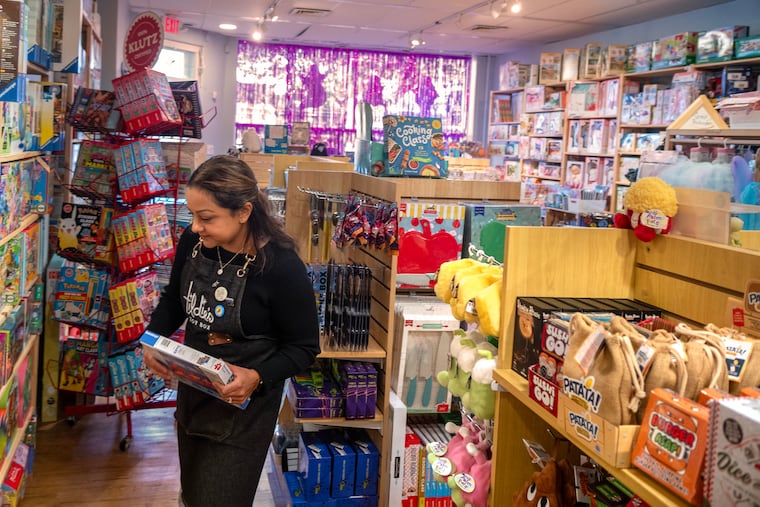Philly-area businesses adapt to challenges posed by Trump’s tariffs six months into implementation.
In the wake of the recent tariffs imposed by the Trump administration, small business owners across the United States are grappling with the financial ramifications. Six months have passed since President Trump announced a minimum 10% tariff on goods imported from various countries, with particularly steep tariffs on imports from nations such as China and India. This policy, aimed at protecting domestic industries, has compelled business owners to reevaluate their pricing strategies and supply chains.
Economists have raised concerns about the potential inflationary pressures arising from these tariffs. The heightened costs of imported goods could impede economic growth and place a strain on small businesses that heavily rely on these materials. As the situation unfolds, business owners face a complex landscape of rising expenses and changing consumer behaviors.
For instance, Fred Woll, president of F.P. Woll & Co., a packaging products supplier in Philadelphia, has already absorbed a 5% increase in costs due to tariffs but is uncertain how long he can sustain this approach. He notes that his company has weathered numerous challenges since its founding in 1907, yet current tariff-induced pressures may pose an existential threat.
Similarly, George Patti, owner of Head Start Shoes, has found himself compelled to raise prices by 10% to 15% as costs continue to escalate. The decline in the dollar’s value is further complicating matters, making it increasingly challenging for small retailers to maintain competitive pricing.
Michelle Gillen-Doobrajh of Tildie’s Toy Box in East Passyunk expresses concern that the tariffs will lead to fewer product options for consumers, thereby diminishing market diversity. As the costs of products soar, she anticipates a shift in inventory strategy, potentially resulting in decreased availability of certain merchandise.
However, not all businesses report negative impacts. Trappe Tavern, a family-run establishment in Montgomery County, has thus far avoided significant repercussions from the tariffs. Owner David Duryea admits to slight price increases but notes that customer spending habits may change if costs continue to rise.
The situation at Delaware Valley Steel underscores the unpredictability inherent in the current economic climate. CEO Jerry Sharpe indicates that while the company is not directly importing materials, domestic suppliers are likely to increase their prices in response to the tariffs.
Consultants, such as Kevin McLaughlin from Centri Consulting, highlight the widespread sense of uncertainty among small business clients. Many owners are adopting proactive measures, including adjusting their product offers and seeking to enhance operational efficiencies to counteract the financial strain.
As businesses navigate this challenging landscape, they are employing diverse strategies to adapt. Some are focused on tightening overhead costs and investing in higher quality products to maintain profitability, while others are exploring alternative supply sources.
Ultimately, the ongoing trade dynamics serve as a reminder of the intricate interconnectedness of the global economy and the profound impact such policies can have on local businesses. Small business owners are demonstrating resilience and resourcefulness as they confront the uncertainties posed by tariffs, each striving to find the right balance in a continually shifting market environment.
Media News Source







